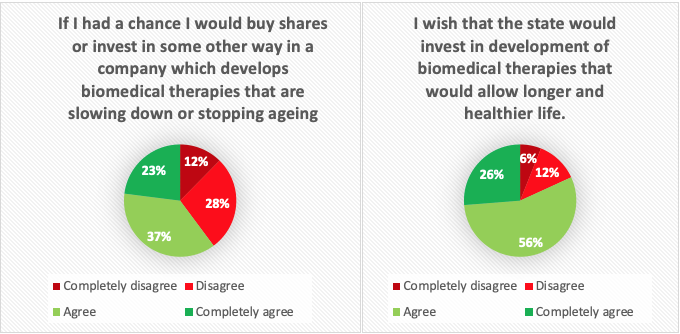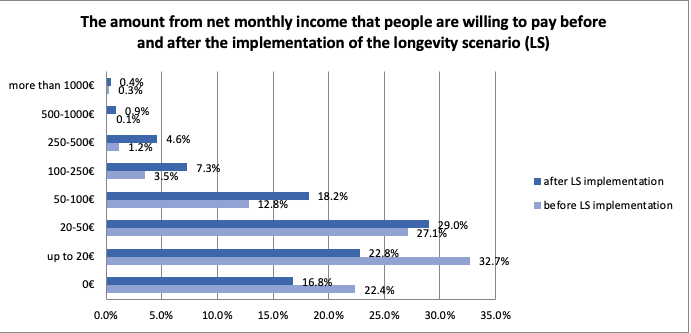Public opinion on life extension – an example from Slovenia
Life extension – the goal to achieve health, vitality, and youthfulness at the age of one hundred or even a hundred and fifty with help of advance science and technology – evokes different responses. On a sociological questionnaire made with 761 people in Slovenia people gave their opinion on this topic.

In the spring of 2020 a group of university professors, students, Slovenian society for vital life extension and company Celica Biomedical prepared twelve minutes long questionnaire on life extension and ageism – which is discrimination based on age; mostly targeting older people. After a successful collection, the results were analyzed and the following things were found out.
On the most important question of the research: “If I had a chance I would use medicines and biomedical therapies which enable longer and healthier lives” 81% of people agreed or completely agreed to it.
In connection with the AAL program – Ageing Well in the Digital World – the following graphs are very interesting. The analysis showed that the majority of people would invest in companies that work towards the goal of life extension and also wish for governments to support this initiative.

What was very interesting for longevity activists and companies was that people’s interest in life extension is stronger when they have more knowledge about healthy longevity, biotechnology, stopping of the biological ageing process and regeneration… The impact of knowledge was visible in answers to general questions and on specific economic questions. Research showed that self-reported knowledge about life extension was statistically significantly positively correlated with the amount of money people are willing to pay for life extension and active care for one’s health. Average Slovenian would pay 39,7€ per month for therapies that slow down or inhibit biological ageing (total 848 million € per year) and would pay 56,31€ per month if we look just people who are very knowledgeable about these medical technologies.
To see better how much more are people willing to pay in a different situation the researchers made a hypothesis that imagination is a limiting factor, and by encouraging it the willingness to pay will go up. So, after the first round of questions, the questionnaire had a short story about the year 2040 when it is normal for people to be healthy at 100 and many live very long. The graph below shows how the second round of answers to the repeated question form the first part of the questionnaire differs after the introduction of the so-called life extension scenario (LS) where effective slowing down of biological ageing is possible.

Finally, on the ageism scale, Slovenians showed as minimally ageist. That’s why although the statistics show that in some cases people who support life extension are less ageist, these results cannot be taken as strong evidence. The difficulty here was, that it is hard to ask people directly or indirectly if they are ageist. To conclude, in the future further research should be done – with bigger numbers of people, different countries and some additional questions.
[Dear reader, if your organization wishes to continue with this research we are happy to cooperate. Research authors: Martin Lipovšek MPhil, prof. dr. Igor Pribac, prof. dr. Robert Zorec, prof. dr. Danijela Lahe, prof. dr. Miroslav Verbič, Metka Kovačič, Klara Vulikić, Jakob Drašček, Nastja Jalovec. And with help of the board of Slovenian society for vital life extension: Domen Keglevič, Laura Vuga and Boštjan Petrič MSc. Company Celica biomedical participated. The research was funded by the Republic of Slovenia and the EU – European Social Fund.]

Author of the article: Martin Lipovšek, MPhil, president of Slovenian society for vital life extension, member of European Longevity Initiative. Mail: martin.lipovsek@gmail.com

